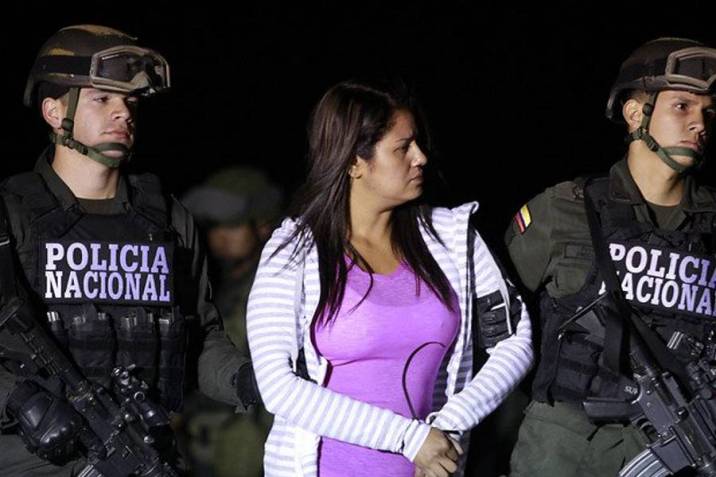RIO DE JANEIRO, BRAZIL – Authorities in Colombia have captured Nini Úsuga, a member of the South American country’s largest drug trafficking gang and sister of the organization’s leader, President Ivan Duque said on Wednesday, March 17th.
Also known as ‘”La Negra”, Úsuga was captured by police and investigators in the municipality of Sabaneta, Antioquia (northwest) and “was in charge of laundering assets” for the Gulf Clan, the conservative president said on Twitter.

Wanted by a U.S. court for drug trafficking, she was also the “most trusted” person of the organization’s leader, Dairo Antonio Úsuga, better known as Otoniel, Duque added on Twitter.
“Otoniel,” the leader of the organization dedicated mainly to drug trafficking and illegal mining, is one of the most wanted men in the country.
“Thanks to the work of the security forces, the support of the Colombian Attorney General’s Office and the work with international authorities, we have dealt one of the hardest blows to the main structure of the Gulf Clan,” said Duque.
Responsible for the wave of violence
The capture is part of a government offensive against the group calling itself the Gaitanista Self-Defense Forces of Colombia, which is made up of remaining members of paramilitary gangs demobilized in 2006 and comprised of some 2,500 members.
Although the group was heavily depleted by a government operation following the peace agreement signed with the FARC in 2016, it is currently “the strongest criminal structure inherited from paramilitarism in the country,” which has succeeded in establishing itself in areas in dispute with other armed groups, according to the Paz y Reconciliación foundation.
The government points to the group, which is mainly financed by drug trafficking, illegal mining and extortion, as one of those responsible for the wave of violence sweeping the country.
The brutal attacks by armed groups are evidenced by the 91 massacres registered last year by Indepaz, an independent observatory, as well as by the many murders of social leaders and ex-guerrillas.
After decades of counter-narcotics efforts, Colombia remains the world’s largest supplier of cocaine and the United States its main consumer.
Source: DW

